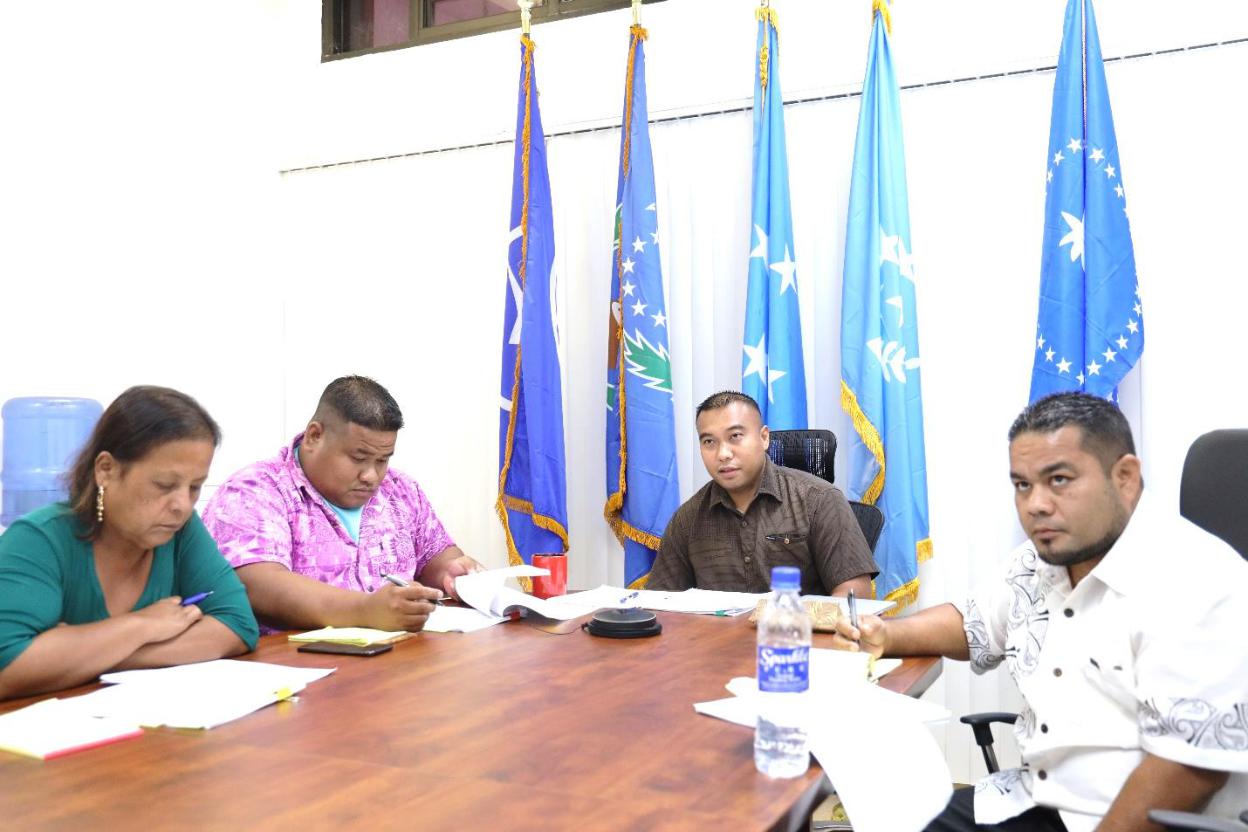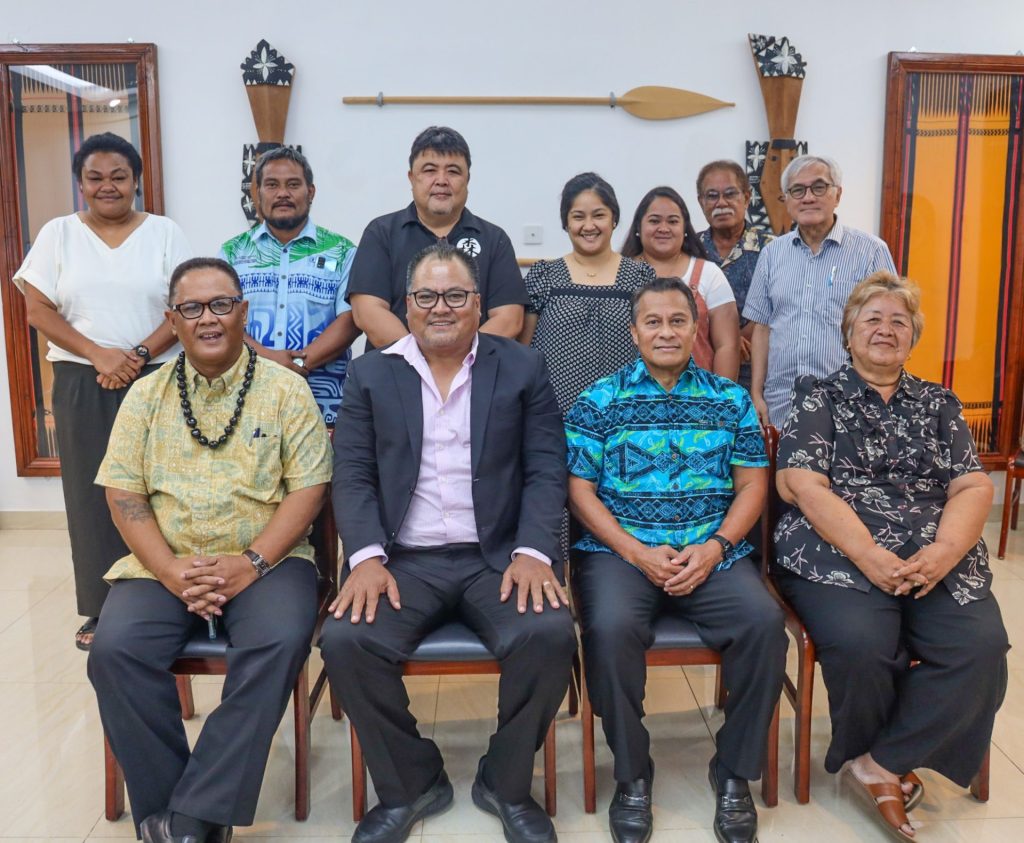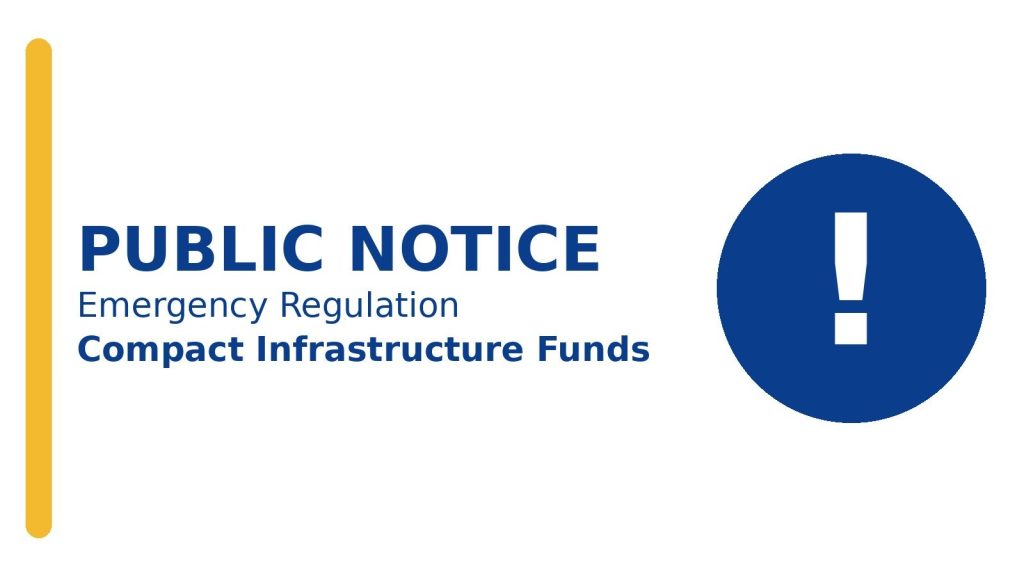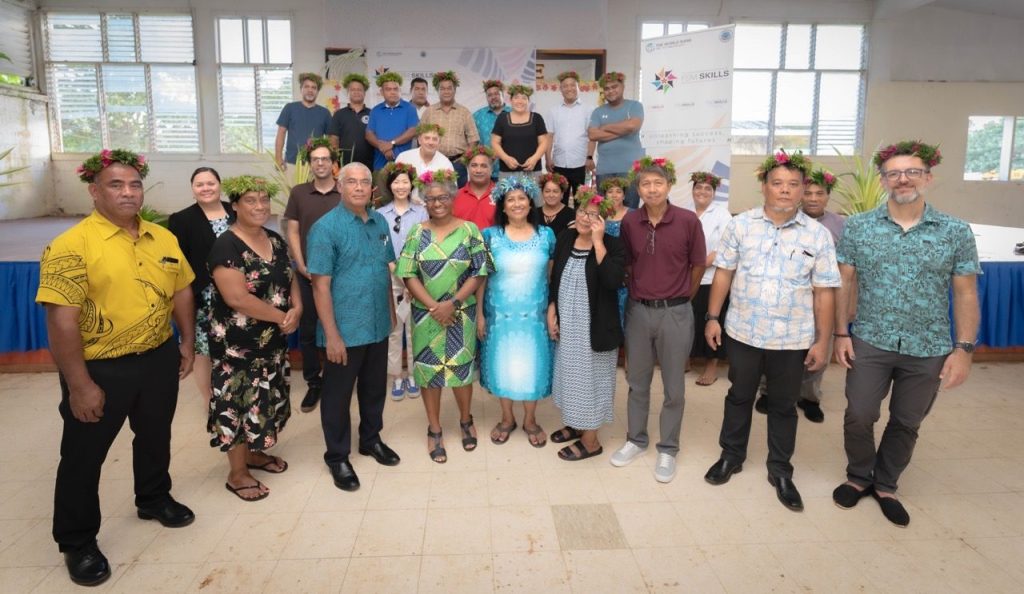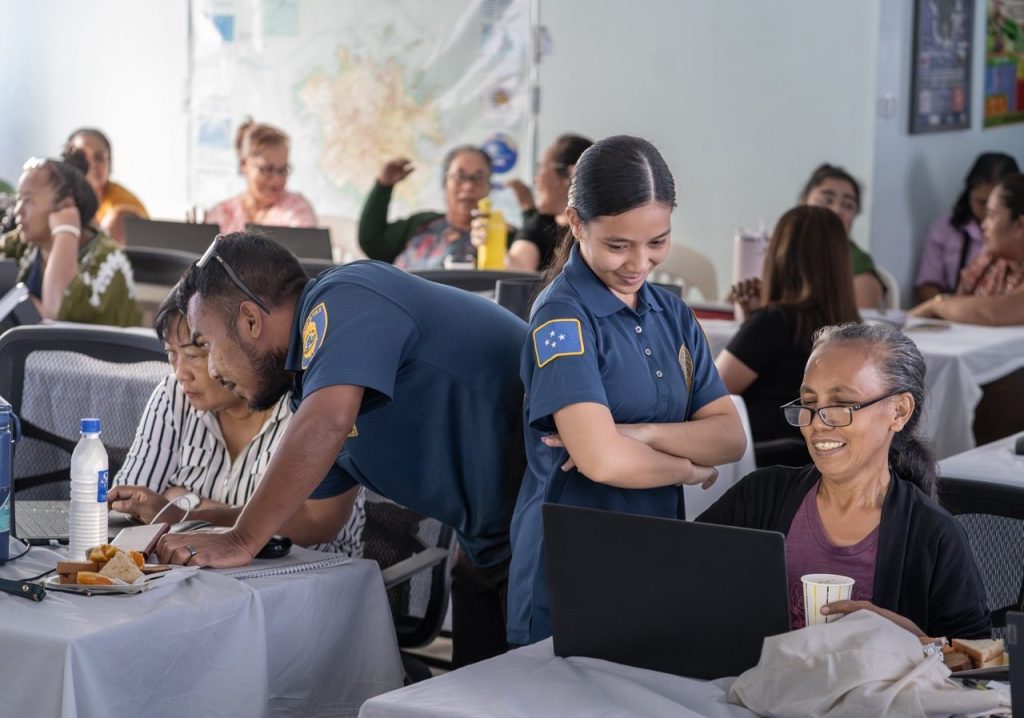PALIKIR, Pohnpei—The Honorable Eugene Amor—Secretary of the Department of Finance & Administration—delivered a statement at the Asian Development Bank’s annual Pacific Governors’ meeting. Representing ADB’s Pacific Governors from the Federated States of Micronesia, Cook Islands, Kiribati, Marshall Islands, Nauru, Niue, Papua New Guinea, Palau, Samoa, Solomon Islands, Timor-Leste, Tonga, Tuvalu, and Vanuatu, Secretary Amor’s statement highlighted the Pacific’s requests for an increase in ADF grants and concessional financing, a restructuring of existing debts, forgiveness of contemporary debts, and access to a safe COVID-19 vaccine across the region once available.
The Secretary’s statement, as prepared, is produced in full below.
President Asakawa, fellow Governors, Ladies, and Gentlemen,
On behalf of the Pacific member countries, I extend my warmest Pacific greetings.
In an ideal world I would like to deliver this statement in person. However, we live in the actual world, and that world has been grappling with the unprecedented crisis unleashed by COVID-19.
I want to congratulate the ADB for hosting its first-ever virtual Annual Meeting. Although this meeting could not be conducted face to face, that does not diminish the importance of the issues before us. In fact, it illustrates the challenges very clearly. In many ways we are fortunate in the Pacific. Most member countries remain COVID-free. Yet the Pandemic has had a profound impact on our economies, our societies, and our way of life. Before the Pandemic struck, we were making visible economic progress. For example, in 2019, the average GDP of Pacific economies expanded by 4%, the region’s best performance since 2015. Now our economies are facing a 5 to 10% fall in GDP this year, and all members face challenging – I would say alarming – circumstances.
Mr. President,
On behalf of my fellow Governors I want to express our most sincere gratitude to the ADB for its swift response and support.
The ADB has shown strong leadership, as shown in the rapid approval of a comprehensive financial package amounting to 20 billion dollars. This shows the trusted partnership that ADB has with member countries.
We welcome the grants and technical assistance in the package. They have helped address the urgent health crisis, providing critical medical supplies like ventilators, test kits, and personal protective equipment. These have assisted Pacific countries in boosting health systems and capacity.
We also welcome the quickly disbursed budget support under the COVID-19 Pandemic Response Option. This provides much-needed budget support and includes assistance to vulnerable parts of our populations including women, children, the elderly, and people with disabilities.
Mr. President,
We are very grateful for the ADB’s support and quick response in the battle against this global pandemic. However, we believe that, given ongoing uncertainty around the duration and magnitude of the crisis, the ADB – with its strong balance sheet – should consider further assistance to developing member countries.
For Pacific members, we request the following to be considered.
The first would be a further increase in ADF grants and concessional financing for the smallest and most vulnerable members, with consideration given to front-loading these funds to members facing constraints in accessing funding, including SIDS that are in Group C.
Second, a restructuring of existing debts to allow delayed payments of both principal and interest, perhaps for at least three years.
Third, forgiveness of debts, as a last resort if the effects of the crisis deepen further – although we understand that a deeper and more careful analysis of such request is warranted.
In addition, the Pacific seeks access to a safe, widely available, and affordable, vaccine for COVID-19 once such a vaccine is prepared.
Mr. President,
COVID-19 will continue to have a profound effect on our economies. We will face up to that.
But Pacific countries also know that we need to keep addressing issues that existed before the Pandemic struck. They, too, require our attention and our action. Let me briefly describe some of these issues.
One is around digitalization and internet connectivity. COVID, more than anything, has underscored the importance of connectivity. Pacific member countries are among the worst-off countries in this regard, struggling to improve internet infrastructure, expand access, and ensure affordability. For example, Papua New Guinea, the biggest Pacific member, continues to grapple with an undeveloped telecommunications market, very high internet prices, and a majority of citizens connected to sub-standard internet technology.
Many of our countries share these challenges. The benefits of improved internet technology and digitalization are crystal clear. While we acknowledge the extent of ADB investments in this area, no one would argue that a lot more remains to be done in our region.
Another issue is the ADB Oceans’ Health Action Plan. This was announced at last year’s Annual Meeting with strong support from all Pacific Governors. In the Pacific we live in the ocean. A quick glance at the map will show there is far, far more ocean than land. So healthy oceans of course are central to the wellbeing and livelihood of our people. The Oceans Health Action Plan is a promising opportunity to preserve our Pacific way of life.
We welcome the funding commitment of $5 billion from the ADB, and the opportunities for the private sectors to invest in projects that protect the Ocean’s Health and stimulate the blue economy. We ask for timely implementation of the Action Plan, and regular progress reporting to Pacific Governors.
Climate Change remains an important regional agenda: Pacific Leaders have called for ambitious action in response to the Climate crisis. We ask ADB to place Climate Change at the core of its new energy policy.
Access to climate finance remain constrained for many Pacific member countries. While the availability of disaster insurance programs like the Pacific Disaster Insurance Program, can serve us well in recovering from disasters, a single typhoon, in a single day, can completely wipe out several years’ worth of economic growth and infrastructure investments. We therefore request expertise in climate resilience planning and financing to be scaled up within the Bank to help Pacific members fast track climate resilience investments.
I also want to mention the Private Sector Window.
We thank ADB management for developing this proposal under the ADF 13 funding framework. As Pacific ADF recipients, we understand the risks associated with private sector operations in our region. However, we are convinced that the proposed Private Sector Window will be a valuable source of investment and a worthy pilot initiative. We believe that an allocation of 2% of ADF grant resources is a sufficiently small, low-risk investment that warrants the Bank trialing and testing small operations under the program.
Finally, I want to mention the availability of, and access to, concessional resources.
Like many small island states, Pacific Islands are at high risk of climate change disasters and exogenous economic shocks. We therefore strongly encourage the ADB to consider extending more concessional resources for highly vulnerable small states that are currently eligible only for OCR lending. The COVID-19 pandemic only exacerbates the need to help these countries access concessional resources.
Mr. President,
We trust that this year’s Annual Meeting will involve a commitment from shareholders to support the ADB’s leadership role in the Pacific, recognizing the unique needs of our small island economies.
Kalahngan and thank you from all of us.

